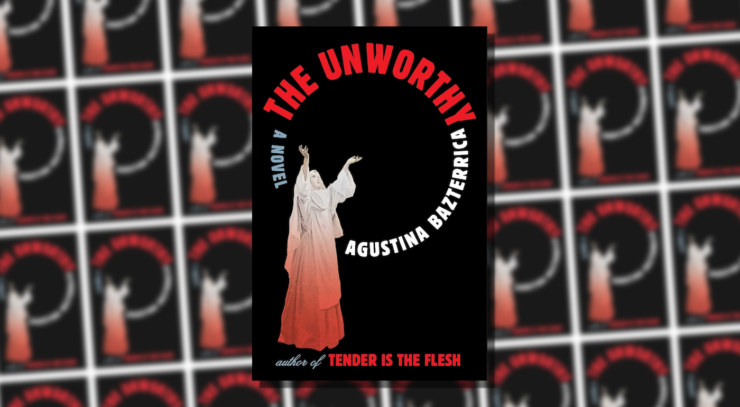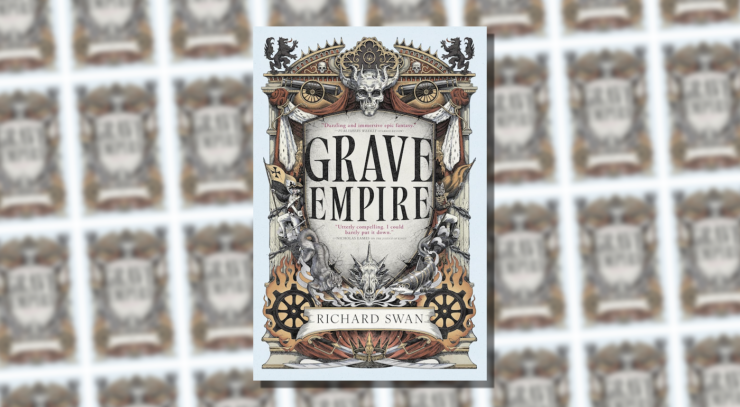There are few things greater in fiction than the annihilation of the magical boy trope, which is only one of many exquisite things about Alex Pheby’s Cities of the Weft trilogy. I first came to Mordew knowing little about the book or the world or why Marlon James was calling it “the future of fantasy.” Now I’m leaving Malarkoi sated, with a full belly from the second installment of Pheby’s extraordinary creation, with even less certainty of how things are going to end. The Cities of the Weft isn’t just a coming-of-age story dissected, subverted, and reassembled into a chaotic new design—that would be doing it a disservice, as it would be to reduce it to a typical fantasy bildungsroman with moralistic lessons and the sort of sentimentality common to the subgenre’s commitment to pedagogy and closure. Pheby makes a close study of these familiar forms and devices and structures, and promptly throws them out the window.
We enter Malarkoi through a plot recap, maps, dramatis personae section, and list of “unusual things” at the start of the book, which are in themselves intriguing peepholes into how Pheby has chosen to present his deluge of ontological concepts, characters, and general idiosyncrasies to fresh eyes. Malarkoi picks up immediately after the matter-of-fact death of Nathan Treeves—Mordew’s magical boy protagonist—very literally at the hands of the Master. The rest of the large ensemble cast includes Nathan’s mother Clarissa, his friends Dashini, Gam, and Prissy, as well as Sirius, a magical dog pledged to his service; after witnessing this unfortunate spectacle from the deck of a commandeered ship, everyone breaks off into smaller groups, each committed to very different paths with very different goals.
Malarkoi’s multi-perspective approach to storytelling mirrors the pluralistic structure of the titular city, just as Nathan’s more traditional narrative was anchored in Mordew’s familiar Dickensian framing of class and religion in a highly stratified society. In Malarkoi, we rotate between different character perspectives, including glimpses into Dashini’s childhood and upbringing to foreshadow her return home. The comparisons to the work of Mervyn Peake, Charles Dickens, Philip Pullman, et al are natural, not just in the bleak neo-Victorian stylings of Mordew, but the vastness of the world as an indifferent machine that operates beyond small human desires. If an acquaintance casually asked me “what Malarkoi is about,” I wouldn’t be able to answer in a way that would satisfy either of us, besides pointing to Marlon James’ brief blurb on the cover. It is the future of fantasy, built on familiar, existing scaffolds that Pheby warps into something fresh.
Buy the Book


Malarkoi
There’s an underlying sense of utility in Pheby’s writing that feels distinctly Chekhovian, where every element of a story is necessary. Where Chekhov’s gun is usually pulled out as the answer to a problem, it’s also often used as a vehicle for satisfaction—yes, we saw the thing at the start, and yes, the thing was eventually used. Its place in this world is resolved and validated. In Malarkoi, this simple narrative principle mutates beautifully in Pheby’s chaotically maximalist prose, which balances rich external detail with the ongoing inner neuroses of the characters. In Malarkoi, the Master’s chapters chronicle his return to the Manse, his efforts to prepare for the militantly atheistic Assembly to arrive, and his attempt to make a new factotum. It is impossible to keep precise track of all the “necessary” parts of the Master’s manic descent into grief and anxiety; Pheby leads the reader back and forth through different realities like a madman laying breadcrumbs. Everything is important, everything is couched in the most beautifully demented sense of urgency and efficiency, but it’s impossible to tell which component of this narrative maelstrom will undo it all; even as the Master adheres to his routines and habits, Pheby shows us that anything and everything can be a gun when the shit hits the fan.
The result is that the reader has to abandon all attempts to parse the text as they read, and commit to following Pheby for the ride. This is the best kind of fantasy fiction—the kind that invites the reader to flow with the narrative, and abandon rationale and reasoning in favor of the journey. Still, Malarkoi isn’t just about well-styled prose and powerful momentum, but also about smart structure. The book’s appendices (and their wonderful footnotes) are critical in gaining a fuller picture of the narrative, and Pheby’s deliberate choice to have the reader experience them at the end (as opposed to weaving them into the main body of the book) brings everything into sharper, clearer focus. More and more I think of Malarkoi not just as a chronicle by an unnamed narrator, but an artefact of its own fiction.
Once it was all over, it was time to cheat—I looked up Pheby’s pre-Malarkoi work out of a gnawing curiosity to see where all of this madness had come from. It’s clear (at least to me) that some of the basic weft worldbuilding ideas were inspired by the historical case of Daniel Schreber, a schizophrenic German judge who was the subject of Pheby’s first novel, Playthings. Freud, of course, believed that Schreber’s problems stemmed from repressed homosexuality—a claim contested by Deleuze and Guattari in their work on schizonalysis. From there, I moved on to furiously googling the historical origins of life insurance and tontines. It was all pointless, of course, but it’s also what I love most about reading big juicy dense unknowable fantasy—the kneejerk urge to conquer your own ignorance by trying to crawl closer to what these references and inspirations and allusions might mean in the greater fabric of the story. Pheby has written something that deliberately activates this part of the lizard brain—to seek answers, like Nathan Treeves, who only got what he wanted in death—and then leaves you right on the edge of understanding, where you belong.
All of this is to say that Malarkoi is one brilliantly-polished facet of a singular gem—a recipe for wonder and unpredictability and suspicion that simply can’t be replicated, no matter how many times you slavishly try and ferret out Pheby’s intentions or ingredients. It’s true that when it comes to art, a work will speak for itself. But for now, I can’t wait for Waterblack—the third part of the trilogy—so I can resume my small, futile quest to scrutinize all three books as a whole artefact, because I just can’t help myself.
Malarkoi is published by Tor Books.
Alexis Ong is a freelance culture journalist with weak ankles who mainly writes about games, tech, and pop culture. Her work has appeared in The Verge, Polygon, Kotaku, Rock Paper Shotgun, VICE, Dazed Digital, and more; soft spots include science fiction, internet archaeology, comics, boxing, and old games. You can find her at her website or on Twitter.














